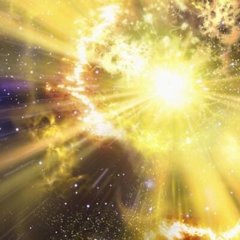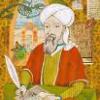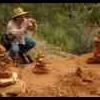-
Content count
3,389 -
Joined
-
Last visited
-
Days Won
13
-
I agree entirely. About the "zest and ease": There can also come a moment when the feelings of zest and ease cease, yet “one-pointedness” and the conscious experience of “reflex movement” in inhalation and exhalation remain. At such a time, said Gautama: … seated, (one) suffuses (one’s) body with purity by the pureness of (one’s) mind so that there is not one particle of the body that is not pervaded with purity by the pureness of (one’s) mind. (AN 5.28, tr. PTS vol. III pp 18-19, parentheticals paraphrase original) The “pureness of mind” that Gautama referred to is the pureness of the mind without any will or intention to act in the body. There is a feeling of freedom, when the activity of inhalation and exhalation is “reflex movement” regardless of where “one-pointedness” takes place. Zen teachers demonstrate the relinquishment of “voluntary control” of the body in favor of the free location of “one-pointedness of mind”, and they do so constantly. Reb Anderson observed such demonstrations in the actions of Shunryu Suzuki: … I remember (Suzuki’s) dharma talks and I remember him in the zendo—that was wonderful teaching. I remember him moving rocks—wonderful teaching. I remember seeing him eat—that was wonderful teaching. He was teaching all the time in every situation. But when he couldn’t sit anymore and couldn’t walk anymore, he still taught right from there. (Reb Anderson, from a 1995 recording) About the freedom: So, when you practice zazen, your mind should be concentrated in your breathing and this kind of activity is the fundamental activity of the universal being. If so, how you should use your mind is quite clear. Without this experience, or this practice, it is impossible to attain the absolute freedom. (Breathing; Shunryu Suzuki; November 4th 1965, Los Altos; emphasis added) What will be the difference? You have freedom, you know, from everything. That is, you know, the main point. (Sesshin Lecture, Shunryu Suzuki; Day 5 Wednesday, June 9, 1971 San Francisco) In Gautama’s parlance: And what… is the ceasing of action? That ceasing of action by body, speech, and mind, by which one contacts freedom,–that is called ‘the ceasing of action’. (SN 35.146, tr. Pali Text Society vol IV p 85)
-
That sounds great. I tried playing with the color myself, feeling slightly unsatisfied with it, but I couldn't improve on it. Your mother is very talented, even if she open-sourced the outline, and I look forward to her further application of that talent! Lucky us, thanks liminal_luke, thanks liminal_luke mom!
-
I like it--I'm wondering where you got the horse, hopefully open-source!
-
Is this an external philosophy, or just a statement of fact? You are not your body, but you are the consciousness in the body, because of which you have the awareness of “I am”. It is without words, just pure beingness. Meditation means you have to hold consciousness by itself. The consciousness should give attention to itself. (Gaitonde, Mohan [2017]. Self – Love: The Original Dream [Shri Nisargadatta Maharaj’s Direct Pointers to Reality]. Mumbai) For most people, that's what's actually missing, how it can be known, and how it can be reinstated IMHO. From something I'm writing: A person gathers and firms “one-pointededness” (of consciousness held by itself) by extending zest and ease such that “there is not one particle of the body that is not pervaded” by the feelings of zest and ease. As I wrote previously: The weight of the body sensed at a particular point in the body can shift the body’s center of gravity, and a shift in the body’s center of gravity can result in what Moshe Feldenkrais termed “reflex movement”. Feldenkrais described how “reflex movement” can be engaged in standing up from a chair: …When the center of gravity has really moved forward over the feet a reflex movement will originate in the old nervous system and straighten the legs; this automatic movement will not be felt as an effort at all. (“Awareness Through Movement”, Moshe Feldenkrais, p 78) “Drenching” the body “so that there is not one particle of the body that is not pervaded” with zest and ease allows the weight of the body and “one-pointedness” to effect “reflex movement” in the activity of the body. In falling asleep, the mind can sometimes react to hypnagogic sleep paralysis with an attempt to reassert control over the muscles of the body, causing a “hypnic jerk”. The extension of a weighted zest and ease can pre-empt the tendency to reassert voluntary control in the induction of concentration, and make possible a conscious experience of “reflex movement” in inhalation and exhalation. (“The Place Where You Stop and Rest”) The moment-to-moment continuation of conscious experience of “reflex movement” marks the cessation of choice in inhalation and exhalation, a cessation that, once experienced in the course of holding consciousness by itself, can be touched on in the course of daily living to provide a rhythm of mindfulness.
-
Yes, I like the feeling of Nungali's horse. The flame was offered free online, I thought it helped sell the horse as a fire horse, but I can submit the horse without it. Doesn't sound like the professionals on the site are approving of the horse, though...
-
Breatharians: Cult rocked by charges of leader's secret snacking By Dana Gluckstein
-
The video not live, but I like the feeling she put into the song.
-
Bass player on that track was Jack Cassidy, mostly known as the bass player of the Jefferson Airplane. He liked a punk band in LA so much he decided to play with them--here they are at the Oakland Coliseum in 1979:
-
Hexagram 30 don't breathe down my neck; nighttime I feel, so unreal
-
and now, gentle tunes are packed away, a new year gallops in with fire
-
Congratulations, Dwai. I pretty much stick to non-fiction, but I know how much writing means to me, so I applaud your endeavor. Currently waiting for KDP Support to tell me they've hashed out the issues with the cover of my paperback. Sigh...
-
'Nother cup of coffee for the part that sleeps, please, Self!
-
"Who cooks for you", said the owl! From the piece about Bhikkyu Kumāra's book, What You Might Not Know About Jhana and Samadhi. that I am still working on (many rewrites later): Gautama described the first concentration in detail: … just as a handy bathman or attendant might strew bath-powder in some copper basin and, gradually sprinkling water, knead it together so that the bath-ball gathered up the moisture, became enveloped in moisture and saturated both in and out, but did not ooze moisture; even so, (a person) steeps, drenches, fills, and suffuses this body with zest and ease, born of solitude, so that there is not one particle of the body that is not pervaded by this lone-born zest and ease. (AN 5.28, tr. Pali Text Society vol. III pp 18-19) How can a singular “bath-ball” be kneaded together, at the same time “zest and ease” is extended so that “there is not one particle of the body that is not pervaded”? As I wrote previously: To drench the entire body with the feelings of zest and ease such that “there is not one particle of the body that is not pervaded” ensures that the consciousness can remain “one-pointed”, even as the specific position of “one-pointedness” shifts and moves. (“The Place Where You Stop and Rest”, edited) Moreover: Words like “steeps” and “drenches” convey that the weight of the body accompanies the feelings of zest and ease. The weight of the body sensed at a particular point in the body can shift the body’s center of gravity, and a shift in the body’s center of gravity can result in what Moshe Feldenkrais termed “reflex movement”. Feldenkrais described how “reflex movement” can be engaged in standing up from a chair: …When the center of gravity has really moved forward over the feet a reflex movement will originate in the old nervous system and straighten the legs; this automatic movement will not be felt as an effort at all. (“Awareness Through Movement”, Moshe Feldenkrais, p 78) “Drenching” the body “so that there is not one particle of the body that is not pervaded” with zest and ease allows the weight of the body and “one-pointedness” to effect “reflex movement” in the activity of the body. In falling asleep, the mind can sometimes react to hypnagogic sleep paralysis with an attempt to reassert control over the muscles of the body, causing a “hypnic jerk”. The extension of a weighted zest and ease can pre-empt the tendency to reassert voluntary control in the induction of concentration, and make possible a conscious experience of “reflex movement” in inhalation and exhalation. That, and: I remind myself that the activity of the body in inhalation and exhalation tends toward coordination by the free placement of consciousness, and look for ease. (Applying the Pali Instructions) Until: So most teacher may say shikantaza is not so easy, you know. It is not possible to continue more than one hour, because it is intense practice to take hold of all our mind and body by the practice which include everything. So in shikantaza, our mind should pervade every parts of our physical being. That is not so easy. (“I have nothing in my mind”, Shunryu Suzuki, July 15, 1969) Gautama spoke similarly about the mind pervading the body: … seated, (one) suffuses (one’s) body with purity by the pureness of (one’s) mind so that there is not one particle of the body that is not pervaded with purity by the pureness of (one’s) mind. (AN 5.28, tr. PTS vol. III pp 18-19, parentheticals paraphrase original) “The pureness of mind” Gautama referred to is the pureness of the mind without any will or intent with regard to the activity of the body. (Just to Sit) For me, the kinesiology is crucial--that's in Just to Sit, and as soon as I wrote "Just to Sit", I published my book ("A Natural Mindfulness"). It's free online.

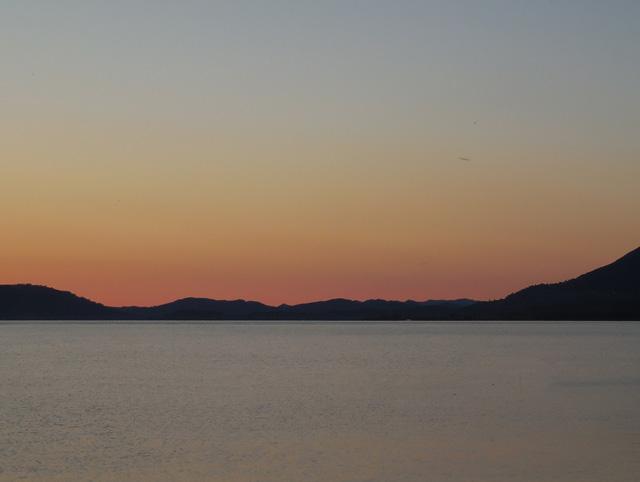
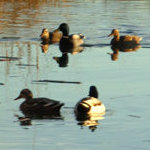

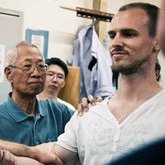



.thumb.jpg.0279361507cce6eb60b037b7a68d8dc9.jpg)
